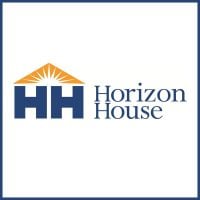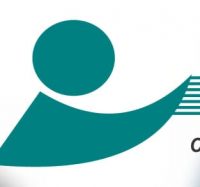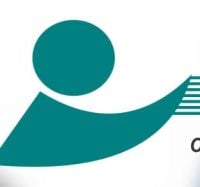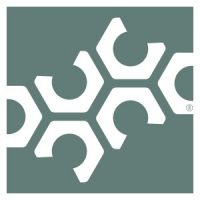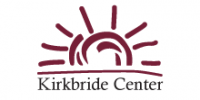ReEnter
Drug Rehab Center in Philadelphia, Pennsylvania
ReEnter is an accredited drug and alcohol addiction treatment center in Philadelphia that provides comprehensive services and addiction therapies using a whole-person approach, including various levels of care and aftercare support.
About This Philadelphia, PA Facility
ReEnter, a private rehab facility located in Philadelphia, Pennsylvania, specializes in the treatment of alcoholism, drug addiction, dual diagnosis, mental health, substance abuse, and opioid addiction. With a focus on providing comprehensive care, ReEnter offers a range of services tailored to meet the unique needs of each individual seeking treatment.
• Accredited drug, alcohol, and addiction treatment center
• Whole-person approach to treating and managing substance use disorders
• Comprehensive services and addiction therapies, including 12-step facilitation, cognitive behavioral therapy, motivational incentives, couples therapy, and dialectical behavioral therapy
• Various levels of care, including aftercare support, drug rehab, dual-diagnosis, inpatient, and residential services
ReEnter is accredited by the Substance Abuse and Mental Health Services Administration (SAMHSA), ensuring that their treatment programs meet the highest standards of quality and effectiveness. Their team of experienced professionals works closely with individuals, couples, and families to provide education, support, and counseling, helping clients develop the necessary skills and coping mechanisms for a sustainable recovery.
In addition to addressing substance use disorders such as alcohol abuse and opioid addiction, ReEnter also offers specialized services like hepatitis and HIV/AIDS counseling and education, as well as trauma therapy to help clients work through any underlying issues that may contribute to their addiction. Aftercare support is available to reinforce healthy behaviors and prevent relapses, ensuring that clients have the tools they need to maintain long-term sobriety.
Genders
Ages
Modality
Additional
Accreditations
SAMHSA
Conditions and Issues Treated
Rehab centers exist in Philadelphia, PA to help individuals bounce back from substance abuse, which is an umbrella term for drug and alcohol addiction. Drug addiction refers to the use of illegal drugs and improper use of prescription drugs. Centers like ReEnter provide individuals a chance to access individual and group therapy that can be monumental for recovery.
Substance abuse includes all problems that stem out from using various psychoactive substances. It is also a diagnostic term used by Diagnostic and Statistical Manual of Mental Disorders (DSM-IV) to define the mental and physical impairment or distress caused by misuse and overuse of certain substances in a period of 12 months.
Opioid addiction involves addiction to legal or illegal opioids. It may happen very quickly with any opioid use. Sometimes within a matter of days. Opioid addiction is a known as a high-risk factor for future heroin addiction.
Opioid withdrawal can be extremely uncomfortable and lead the user to continue to use even if they want to quit. Stopping using an opioid requires careful medical observation. Sometimes the withdrawal can persist for many weeks, which can put the user at a high risk for relapse.
It is recommended to receive inpatient treatment and a medically supervised detox like those offered at ReEnter in Philadelphia, PA, PA, to manage the withdrawal process while learning lasting tools to maintain recovery. In some circumstances medications can be used to manage opioid addiction.
People with dual diagnosis have coexisting addiction and a mental disorder. 9.2 million US adults had a co-occurring disorder in 2018, so not just limited to Pennsylvania residents. Best treatment combines medication, psychotherapy (talk therapy), support group, and inpatient rehabilitation. Sometimes, complementary therapies – yoga, massage, and acupuncture – may also be used.
Levels of Care Offered
This center offers a variety of custom treatment tailored to individual recovery. Currently available are Aftercare Support, Drug Rehab, Dual-Diagnosis, Inpatient, Residential, with additional therapies available as listed below.
Inpatient rehab is intended to treat severe addictions and co-occurring disorders. The length of stay in Pennsylvania varies from four weeks to six months according to the individual needs. Inpatient rehab ensures that the patient stays in a substance-free environment at ReEnter.
Residential treatment programs are those that offer housing and meals in addition to substance abuse treatment. Rehab facilities that offer residential treatment allow patients to focus solely on recovery, in an environment totally separate from their lives. Some rehab centers specialize in short-term residential treatment (a few days to a week or two), while others solely provide treatment on a long-term basis (several weeks to months). Some offer both, and tailor treatment to the patient’s individual requirements.
After treatment, addiction treatment can be frightening for newly sober people. Aftercare support provided by ReEnter is designed to give resources and help on a continued basis. It can involve finding housing in and around Pennsylvania, setting up 12-step meeting groups, continued medical monitoring, and counseling.
ReEnter‘s Therapies & Programs
Individual therapy aims to identify the core issues that would have led the patient to substance abuse and address the root cause effectively. Patients find the therapist as a person who they can trust. It helps them to open up and discuss personal and sensitive issues, which they may not be comfortable discussing in a group.
Couples therapy is an approach wherein the patients and their partners are engaged together as a part of the treatment process. When a person becomes a victim of substance abuse, it affects the patient and the people around him, particularly his partner. Their relationship can become strained due to lack of communication, financial issues, loss of trust, lack of intimacy, and physical abuse in more severe cases.
Couples therapy addresses these issues and tries to rebuild the trust between the partners. The partner’s involvement in the process will result in greater chances of treatment success and sustained recovery.
Family therapy is a set of therapeutic approaches that assumes that the entire family is a system. It utilizes the strengths and resources of the family to help the patient refrain from resorting to substance abuse. It helps to repair relationships and improve communication between family members.
Group therapy happens at ReEnter in a controlled group environment, as opposed to a one-on-one setting. It supports Philadelphia, PA patients’ recovery by offering a sense of comfort and letting them know that they are not alone. Through shared conversations, patients also learn to develop faith and understanding and gain insight on their addictions.
Unresolved trauma is often a key reason why many patients resorted to substance abuse. Trauma therapy refers to treatment wherein specialist therapists help the patients to resolve the trauma that led the patients to substance abuse. The trauma could be physical abuse, sexual abuse, war, natural disasters, divorce, accident, loss of a loved one, etc. Thinking of these traumatic events causes emotional disturbances like anxiety, depression and results in addiction. If trauma is the primary cause of substance abuse, then both issues must be addressed. Otherwise, there is a risk of relapse. Trauma therapy also improves the cognitive functions and provides long term benefits.
Dialectical Behavior Therapy (DBT) is an improved version of Cognitive Behavioral Therapy (CBT). DBT is a treatment of choice for people suffering from self-harming behaviors characterized by cutting and suicidal thoughts or inclinations.
This treatment is developed to help individuals recognize their thought patterns, behaviors, and feelings. It has demonstrated its effectiveness for people that are finding it difficult to control their emotions and urges. Conditions such as obsessive-compulsive disorder and borderline personality disorder also benefit from DBT as it imparts individuals stress-management techniques and enhanced self-esteem so they can sustain their sobriety by reducing the impact of triggers and out-of-control emotions.
Cognitive behavioral therapy (CBT) is a way of addressing concerns through talking. It can be used in individual counseling sessions. Talking through issues with professionals at ReEnter can identify sources of discomfort or unhealthy thoughts. It is a way of learning about yourself and your individual perceptions. CBT is a healthy way of addressing some behaviors which may be bringing unintended consequences in your life.
Contingency management is a way to help motivate someone to remain substance free. It is a process of rewarding positive choices and good outcomes. As humans we are wired to recreate experiences that lead to positive feelings. Through this method incentives are used for completing positive steps towards a sober life. This may be a reward for attending meetings, remaining sober or for employment goals.
Payment Options Accepted
For specific insurance or payment methods please contact us.
Additional Details
Specifics, location, and helpful extra information.
Philadelphia, Pennsylvania 19104 Phone Number(215) 222-2770 Meta DetailsUpdated April 15, 2024
Staff Verified
Patient Reviews
There are no reviews yet. Be the first one to write one.
Philadelphia, Pennsylvania Addiction Information
Pennsylvania ranks 14th in the nation for drug-related deaths. More than 10% of all deaths in Pennsylvania have been related to drugs and alcohol. 30% of Pennsylvania youth reportedly drink alcohol monthly, with more than 20,000 teenagers having an alcohol problem. The rate of opioid misuse in Pennsylvania is double the national average.
Drug addiction and abuse are a big problem in Philadelphia, Pennsylvania. According to recent statistics, about 73,000 people in Philadelphia struggle with drug addiction. This means that about 7.5% of the population is addicted to drugs. Philadelphia also has one of the highest overdose rates in the country, with about four deaths per 100,000 people. It is important to choose a program that fits the individual's needs and addiction severity.
Treatment in Nearby Cities
- Bristol, PA (20.4 mi.)
- Bridgeville, PA (261.4 mi.)
- Blairsville, PA (217.5 mi.)
- Monroeville, PA (245.0 mi.)
- Ridgway, PA (211.2 mi.)
Centers near ReEnter
The facility name, logo and brand are the property and registered trademarks of ReEnter, and are being used for identification and informational purposes only. Use of these names, logos and brands shall not imply endorsement. RehabNow.org is not affiliated with or sponsored by ReEnter.




